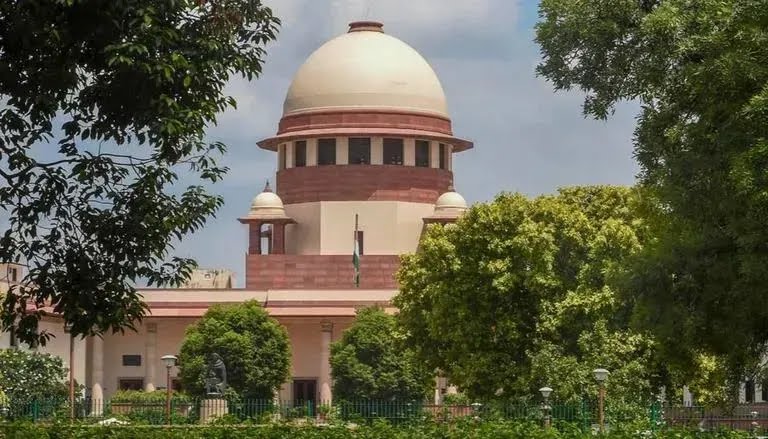The Supreme Court held by noting that every citizen of India has a right to be critical of the abrogation of Article 370 and the change of status of Jammu & Kashmir.
The apex court’s remarks came while quashing an FIR lodged against Javed Ahmad Hajam, a Kashmiri Muslim professor working in a Kolhapur college in Maharashtra who was booked under section 153A of IPC for putting out a WhatsApp status in a group terming ‘August 5 -Black Day for Jammu & Kashmir’ and celebrating Independence day of Pakistan on August 14.
The apex court held that describing August 5 as a “Black Day” is an expression of protest and anguish and that the professor intended to criticise the action of the abrogation of Article 370 of the Constitution on that day.
The SC also said that every citizen has the right to extend good wishes to the citizens of the other countries on their respective independence days.
"It's a gesture of goodwill. In such a case, it cannot be said that such acts will tend to create disharmony or feelings of enmity, hatred or ill- will between different religious groups. Motives cannot be attributed to the appellant only because he belongs to a particular religion," the bench said.
If a citizen of India extends good wishes to the citizens of Pakistan on 14th August, which is their Independence Day, there is nothing wrong with it, the apex court observed.
"Describing the day the abrogation happened as a 'Black Day' is an expression of protest and anguish.
If every criticism or protest of the actions of the State is to be held as an offence under Section 153-A, democracy, which is an essential feature of the Constitution of India, will not survive," the bench said.
"The right to dissent in a lawful manner must be treated as a part of the right to lead a dignified and meaningful life guaranteed by Article 21," it said.
The protest or dissent must be within four corners of the modes permissible in a democratic set-up, the bench said, adding it is subject to reasonable restrictions imposed in accordance with clause (2) of Article 19. The apex court said in the present case, the appellant has not at all crossed the line.
The SC bench said the high court has held that the possibility of stirring up the emotions of a group of people cannot be ruled out.
The top court further added and said that the time has come to enlighten and educate our police machinery on the concept of freedom of speech and expression guaranteed by Article 19(1)(a) of the Constitution and the extent of reasonable restraint on their free speech and expression.
They must be sensitised about the democratic values enshrined in the Constitution, it said.

